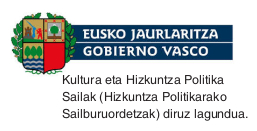The main Basque media and the main Spanish media in the Arab Spring: two different types of conflict coverage
DOI:
https://doi.org/10.26876/uztaro.129.2024.5068Keywords:
Arab Spring, Conflict journalism, Forking conditions, FreelanceAbstract
The Arab Spring has been one of the milestones in monitoring conflicts, as social networks, at that time innovative, offered a new approach to news monitoring and marked a significant change in the way journalists work. All this, together with the crisis suffered by the media in 2008, had a direct impact on media budgets and, therefore, on the working conditions of journalists. Based on this context, this paper aims to investigate the type of monitoring of the Arab Spring carried out by the main Basque and Spanish media, as well as the working conditions of the journalists who monitored these events. To carry out the analysis, the heads of the international department of each media have been identified and interviewed. Among the main results are the majority dependence of breaking news on international issues and especially on conflicts, the prominent presence of freelance or freelance journalists and the precarious working conditions, highlighting the implications that this situation can have on the information itself and on the safety conditions of professionals.
Downloads
References
Asociación para la Investigación de Medios de Comunicación (2011). Marco general de los medios en España. https://www.aimc.es/a1mc-c0nt3nt/uploads/2011/01/marco11.pdf
Allan, S., eta Zelizer, B. (argtz.) (2004). Reporting war: Journalism in wartime. Routledge.
APM Asociación de la Prensa de Madrid (2021). Informe annual de la profesión periodística. https://www.apmadrid.es/wp-content/uploads/2022/10/Informe-anual-Profesion-Periodistica-2021_web_lite.pdf
Argiz Acuña, Á. (2006). De mercenarios a héroes: un recorrido por la historia del periodismo Freelance. Estudios sobre el Mensaje Periodístico, 12, 27-43.
Asal, V., Krain, M., Murdie, A., eta Kennedy, B. (2018). Killing the messenger: Regime type as a determinant of journalist killing, 1992-2008. Foreign Policy Analysis, 14(1), 24-43.
Aubert, C. (2007). La division du travail au sein d’un organe de presse : modes et usages des formes d’emploi. Documents du travail du Centre d’Economie de la Sorbonne, Centre National de la Recherche Scientifique, 1-16.
Cantalapiedra, M.J., Coca, C., eta Bezunartea, O. (2000). La situación laboral de los periodistas vascos. Zer, 5(9).
Comisión Nacional de Trabajadores (2017). Periodismo en la UVI Las precarias condiciones de los colaboradores internacionales de medios españoles. http://graficasmadrid. cnt.es/wp-content/uploads/2017/03/Periodismoenlauvi_PRINT.pdf
Comisión Nacional de Trabajadores (2018). Periodismo en la UVI La precariedad en las colaboraciones nacionales. http://graficasmadrid.cnt.es/wp-content/uploads/2018/06/Colaboraciones_nacionales2018.pdf
Cushion, S. (2007). Rich media, poor journalists: journalists’ salaries. Journalism Practice, 1(1), 120-129.
Del Paso Gallego, A. C. (2016). Rol de las mujeres periodistas españolas en la cobertura de conflictos armados (doktorego-tesia). Universidad Complutense de Madrid.
Deuze, M., eta Witschge, T. (2018). Beyond journalism: Theorizing the transformation of journalism. Journalism, 19(2), 165-181.
Díaz-Noci, J., Meso, K., Larrondo-Urreta, A., Salaverría-Aliaga, R., eta Sadaba-Chalezquer, M.R. (2010). Presencia y uso de internet en las redacciones de los diarios regionales vascos y navarros. Mediatika, 12, 301-319.
Fernández, R. (1997). Communication workers in Spain: The reward of appearance. Communication Review, 2(3), 381-393.
Gallardo, C., eta De la Quintana, A. (2012). La Prevención de Riesgos en los Corresponsales de Guerra. Actas – IV Congreso Internacional Latina de Comunicación Social – IV CILCS, Universidad de la Laguna, 1-12.
Großhans, E., eta Rau, H. (2009). Analysis of self-‐conception and labour conditions of business journalists working for European media. Conference Papers-International Communication Association, 1-15.
Gutiérrez-Cuesta, J (2021). La precariedad en el periodismo: el colaborador en la prensa de Bizkaia, (doktorego-tesia). Euskal Herriko Unibertsitatea.
Hanusch, F. (2015). A different breed altogether? Distinctions between local and metropolitan journalism cultures. Journalism Studies, 16(6), 816-833.
Harris, J., eta Williams, K. (2018). Reporting war and conflict. Routledge.
Herrero Alvarez, A. (2020). La precariedad laboral en los medios de comunicación. Los falsos autónomos (gradu-amaierako lana). Universidad de la Laguna.
Hesmondhalgh, D. (2015). Exploitation and Media Labour. The Routledge Companion to Labor and Media. Routledge.
Hughes, S.L., eta Márquez Ramírez, M. (2017). Examining the practices that Mexican journalists employ to reduce risk in a context of violence. International Journal of Communication, 11, 499-521.
Iturregui Mardaras, L. (2011). Origen y evolución de la relación entre periodistas y militares en operaciones. El sistema de empotrados Irak 2003 (doktorego-tesia). Euskal Herriko Unibertsitatea.
Lavín De las Heras, E. (2015). Análisis de la influencia de las tecnologías de información a los corresponsales de guerra españoles (doktorego-tesia). Universidad Camilo José Cela.
Lohner, J., Neverla, I., eta Banjac, S. (2017). Structural working conditions of journalism in Egypt, Kenya, Serbia and South Africa: Empirical findings from interviews with journalists reporting on democratisation conflicts. In Katy Parry (argtz.), Media, Conflict and Democratisation (MeCoDEM) (1-20. or.). University of Leeds.
Lqbal, Y.W., eta Ullah, Q.F. (2013). Working conditions of journalists in district Swat at the end of militancy. J Mass Communicat Journalism, 3(160), 2.
Marta-Lazo, C., eta García-Idiakez, M. (2014). El uso profesional de la red social Twitter en la redacción del diario español El País. Palabra clave, 17(2), 353-377.
Martínez Sanz, R., eta Durántez Stolle, P. (2019). El ejercicio del periodismo de investigación en España. La percepción de su estado actual. Revista Latina de Comunicación Social, (74), 94.
Mathisen, B.R. (2017). Entrepreneurs and idealists: Freelance journalists at the intersection of autonomy and constraints. Journalism Practice, 11(7), 909-924.
Mathisen, B.R. (2019). Ethical boundaries among freelance journalists. Journalism Practice, 13(6), 639-656.
Moreno, R. (2010). ¿Informamos adecuadamente sobre afganistán? Cuadernos De Periodistas: Revista De La Asociación De La Prensa De Madrid, (21), 46-58.
Oller Alonso M., Blanco Herrero D., Splendore S., eta Arcila Calderón C. (2021). Migración y medios de comunicación. Perspectiva de los periodistas especializados en España. Estudios sobre el Mensaje Periodístico, 27(1), 205-228.
Puerta, C. (2022). Una conversación sobre periodismo ‘freelance’y su sostenibilidad. Cuadernos de periodistas: revista de la Asociación de la Prensa de Madrid, 44, 101-117.
Rivas-de-Roca, R., García-Gordillo, M., & González, F.J.C. (2020). La construcción del periodismo “localizado” en medios digitales europeos. Estudio de casos. Revista Latina de Comunicación Social, 75, 1-26.
Roses, S. (2011). Journalists’ salary structure in Spain during the crisis. Revista Latina de Comunicación Social, 66, 178-209.
Salamon, E. (2018). Freelance journalists’ rights, contracts, labor organizing, and digital resistance. In Scott A. Eldridge II, Bob Franklin (argtz.), The Routledge handbook of developments in digital journalism studies, Routledge, 186-197.
Soengas Pérez, X., Rodríguez Vázquez, A.I., eta Abuín Vences, N. (2014). The professional situation of Spanish journalists: the repercussions of the crisis on the media. Revista Latina de Comunicación Social, 69, 104-124.
Taylor, S.J., eta Bogdan, R. (1987). Introducción a los métodos cualitativos de investigación. Paidós.
Tumber, H. (2006). The fear of living dangerously: Journalists who report on conflict. International relations, 20(4), 439-451.
Tumber, H., eta Webster, F. (2006). Journalists under fire: Information war and journalistic practices. Sage.
Unda-Endemaño, A., Iturregui-Mardaras, L., eta Cantalapiedra-González, M.J. (2022). La tribu sin suerte. Transformaciones y retos del periodismo de conflicto en España. Cuadernos.Info, 53, 1-21.
Walters, E., Warren C., eta Dobbie, M. (2006). The Changing Nature of Work: A Global Survey and Case Study of Atypical Work in the Media Industry. Research on atypical work in the media industry, International Federation of Journalists, 1-31.
License
Copyright (c) 2024 Annette Unda Endemaño, Leire Iturregui Mardaras

This work is licensed under a Creative Commons Attribution-NonCommercial-ShareAlike 4.0 International License.




















